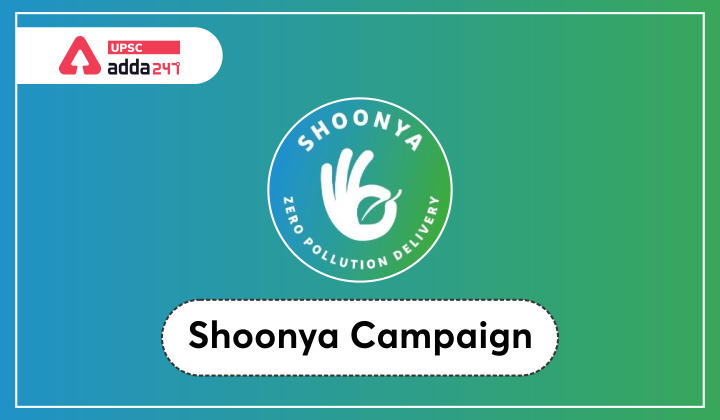Table of Contents
Relevance
- GS 3: Conservation, environmental pollution and degradation.
Context
- NITI Aayog, with RMI and RMI India’s support, has launched Shoonya campaign to promote zero-pollution delivery vehicles by working with consumers and industry.
Key points
- The campaign aims to accelerate adoption of electric vehicles (EVs) in the urban deliveries segment and create consumer awareness about the benefits of zero-pollution delivery.
- As part of the campaign, a corporate branding and certification programme was launched to recognise and promote industry’s efforts towards transitioning to EVs for last-mile deliveries.
- The campaign will promote awareness about health, environmental and economic benefits of electric vehicles.
Significance
- Transitioning to clean transportation is critical as India continues to move forward towards a sustainable and resilient future.
- Competitive economics and available technology support the full electrification of India’s urban deliver fleets on an accelerated timeline.
- Freight electrification will create tailwinds for other market segments to follow.
Why important?
- Urban freight vehicles account for 10% of freight transportation-related CO2 emissions in India, and these emissions are expected to grow by 114 percent by 2030.
- EVs emit no tailpipe emissions, which can contribute immensely to an improved air quality.
- Even when accounting for their manufacture, they emit 15-40 percent less CO2 compared to their internal combustion engine counterparts, besides having lower operational cost.
Steps to promote EVs
- For the promotion of electric mobility in the country, the Government had launched Phase-I of the FAME India Scheme (Faster Adoption of Electric (& Hybrid) Vehicles in India)
- All electric & hybrid vehicles, including public transport, registered under the scheme are being incentivized under the Demand Creation focus area of this scheme.
- The Indian Space Research Organisation (ISRO) has commercialized indigenously developed lithium-ion battery technology and has selected 14 companies for transfer of technology.
- Ministry of Power has issued a policy on charging infrastructure and has issued a notification clarifying that charging electric vehicles will be a service, not a sale of electricity.
- In 2018, the Government had granted exemption to Battery Operated Transport Vehicles and Transport Vehicles running on Ethanol and Methanol fuels from requirement of permit.
- Ministry of Housing and Urban Affairs has made amendment in the Urban and Regional Development Plans Formulation and Implementation (URDPFI) guidelines to provide for electric vehicle charging stations in private and commercial buildings.
- The Union and the state Governments have introduced policies to provide upfront incentives for EVs, which will lower the capital cost by a high margin.
- E-commerce companies, fleet aggregators, original equipment manufacturers (OEMs) and logistics companies have been scaling up their efforts towards final-mile delivery electrification.



 TSPSC Group 1 Question Paper 2024, Downl...
TSPSC Group 1 Question Paper 2024, Downl...
 TSPSC Group 1 Answer key 2024 Out, Downl...
TSPSC Group 1 Answer key 2024 Out, Downl...
 UPSC Prelims 2024 Question Paper, Downlo...
UPSC Prelims 2024 Question Paper, Downlo...
